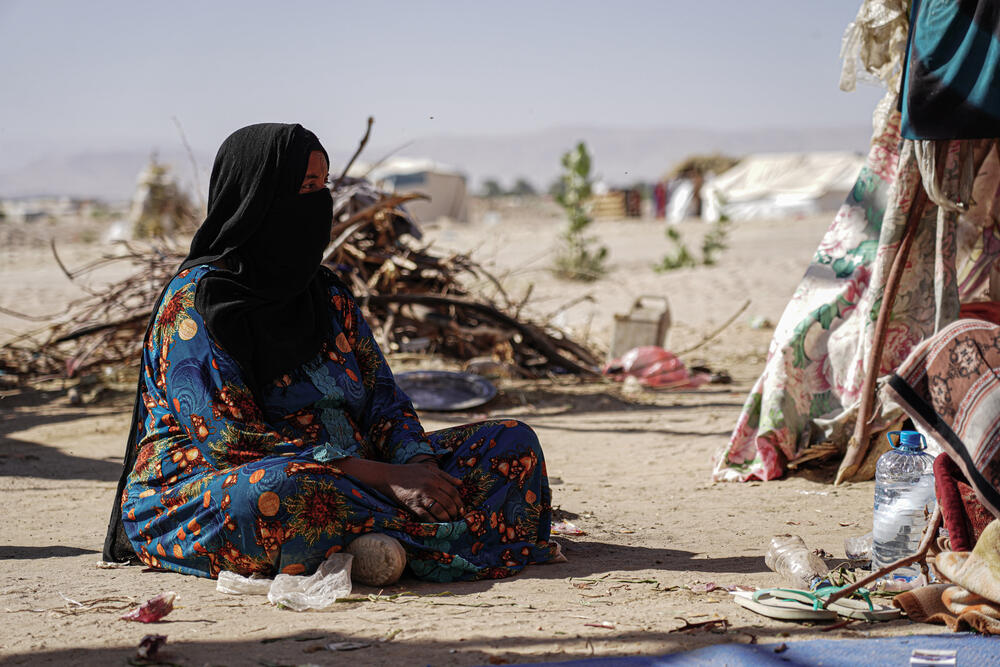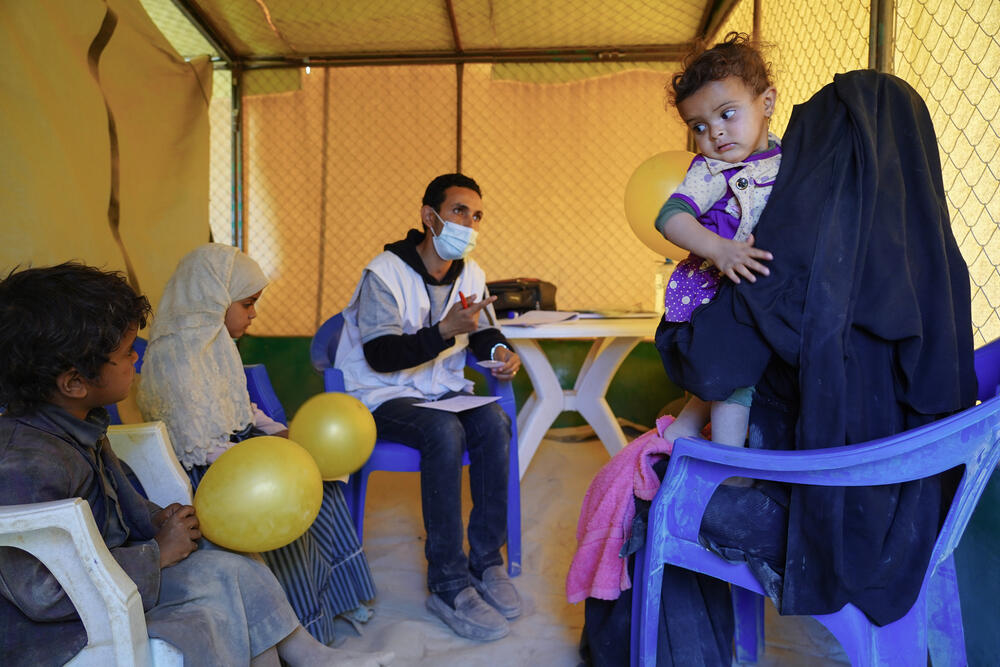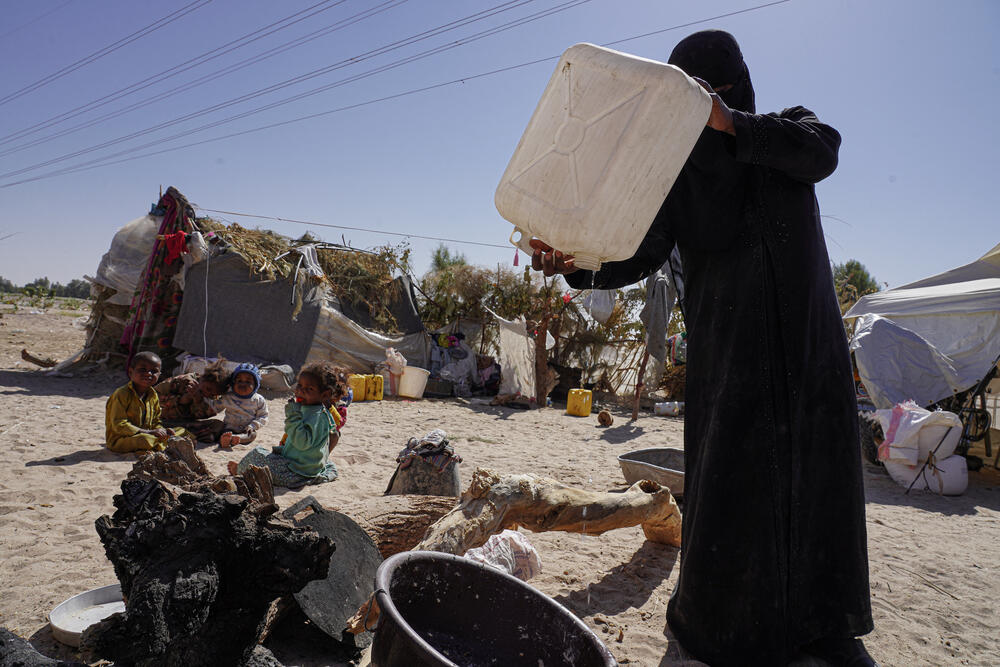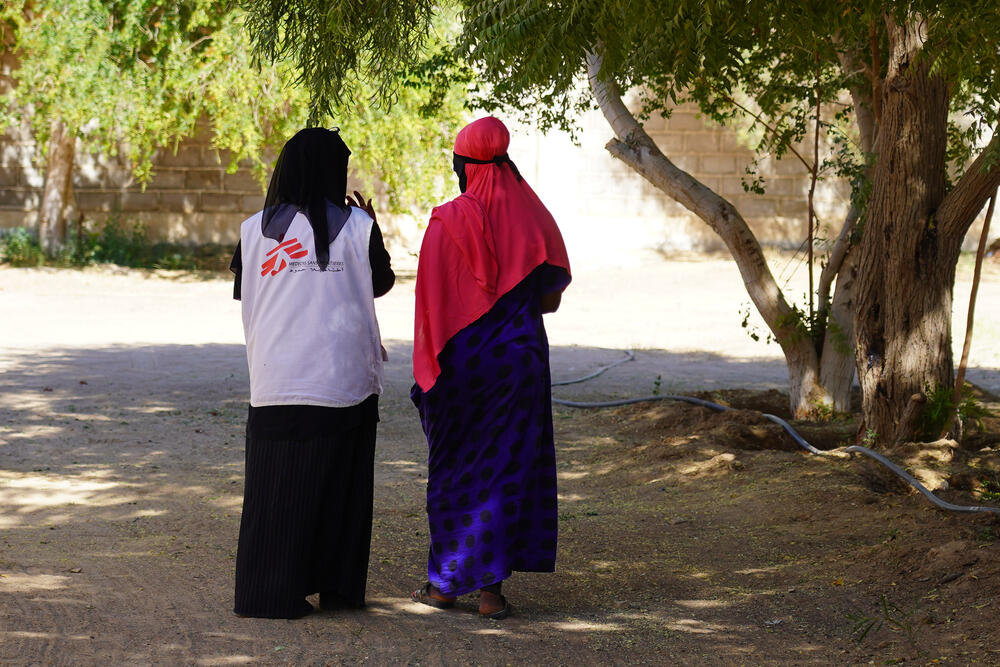Mental health: The neglected crisis in Yemen’s frontline city
Mental health specialist Hasina is in Marib, where the uncertainty of Yemen's seven-year civil war has taken its toll on families forced from home.
The first time Asifa sought our help, she was crying a lot, feeling sad and frustrated about not being able to care for her family. Twenty-nine years old, she lives with her husband and five children in a camp for people displaced by Yemen’s brutal civil war.
She explained that her symptoms began after they were forced from home. They are now living in a crowded tent and she is frustrated about the deterioration of the relationship with her husband.
“After the displacement, he became very angry, always displacing his anger on me and the children,” she said.
“He also became very suspicious of everything. He lost control over the family; he doesn’t provide for us. He thinks we don’t listen to him anymore.”
“People do not have food to eat, clothes to wear or safe places to live with their children”
With no place to live, no hope for the future, no food for her children and with a husband who beats her, Asifa believes she is better off dead.
Marib
Asifa's is not the only story in Marib.
Caught along one of Yemen’s remaining active frontlines, the city and its surrounding region now host thousands of vulnerable people displaced by the conflict.
People do not have food to eat, clothes to wear or safe places to live with their children. This leads to direct negative effects on both their physical and mental health.
Family disruption is a significant factor.
About 50 percent of women who come for consultations at MSF’s mobile clinics say their mental health problems are getting worse due to this issue. Their husbands are behaving in more controlling ways or neglecting and abandoning them after the displacement.
At the same time, men also come to us, concerned that they are not able to practise their traditional family role as breadwinners, and about the toll it is taking on their mental health.
Loved ones on the frontline
Losing loved ones to the conflict and the fear that violence may erupt at any time means many of our patients are always anxious and anticipate disaster.
For many men, working on the frontline is the only way to gain money and survive, while many women live in constant fear that they might lose their relatives.
This uncertainty contributes to several mental health issues including depression, sleeping disorders and anxiety disorders.
Post-traumatic stress is common. Many live with excruciating images and nightmares about the war. These symptoms are often exaggerated in women who have loved ones still on the battlefield.
A camp of strangers
Conflict and displacement have also affected the sense of community. The camp is a collection of strangers.
From November 2020 to 2021, 70 percent of people who came for individual consultations in our clinics reported that their displacement, coupled with the lack of community support, made them feel frustrated, hopeless and less able to cope.
Seventeen-year-old Samira* is an Ethiopian migrant living in a camp. She was referred for counselling after an MSF doctor noticed signs of psychological distress.
Six months ago, Samira left her family to go to Saudi Arabia and find a job. She experienced both physical and sexual violence on her way – a shockingly common experience for many migrants smuggled via Yemen.
Samira is now stuck in Marib in a small tent with more than 20 women. She has no money to buy food or warm clothes and no way to communicate with her family. She says she feels worthless and sees no hope in her life. She is sad, anxious and isolates herself.
“We do this to help people access basic services for their survival and safety”
For the migrants currently living here, their lack of basic necessities has become a struggle for survival. They still worry about reaching Saudi Arabia and finding work to support their families. Mental health is not a priority.
However, as most migrants come to MSF clinics for physical complaints, community mental health staff work alongside doctors to triage people showing signs of distress and refer them for counselling.
In the year to November 2021, MSF provided 265 mental health consultations for migrants in Marib. The overwhelming majority suffered from anxiety-related disorders, and around a third of people had depressive symptoms and suicidal thoughts.
A neglected healthcare emergency
People’s need for mental health support in Marib is visibly high.
It is one of the most neglected areas of healthcare in Yemen. At the same time, a lack of awareness and stigma surrounding mental health issues often prevent people from seeking care.
Inside the camp, families can become more conservative about women’s movements, who themselves won’t come for care unless it’s an emergency. Supporting female migrants is also challenging as smugglers accompany them everywhere. The women do not have access to mobile phones and home visits become impossible. It’s hard to follow up with people.
There are around two million people in total in Marib, however, MSF is the only organisation providing counselling and psychiatric care, as well as community awareness-raising.
We do this to help people access basic services for their survival and safety.
MSF alone cannot meet the overwhelming mental health needs of people in Marib. There are many others like Asifa and Samira who need support.
*Name changed to protect their identity

Help us prepare for the next emergency
MSF and the crisis in Yemen
Yemen is in the midst of a civil war.
Indiscriminate bombings and chronic shortages of supplies and staff have led to the closure of more than half of the country's healthcare facilities.
More than three million people have been displaced since the war started in 2015. With an estimated 20 million in need of humanitarian assistance, our activities in Yemen are among our most extensive worldwide.




